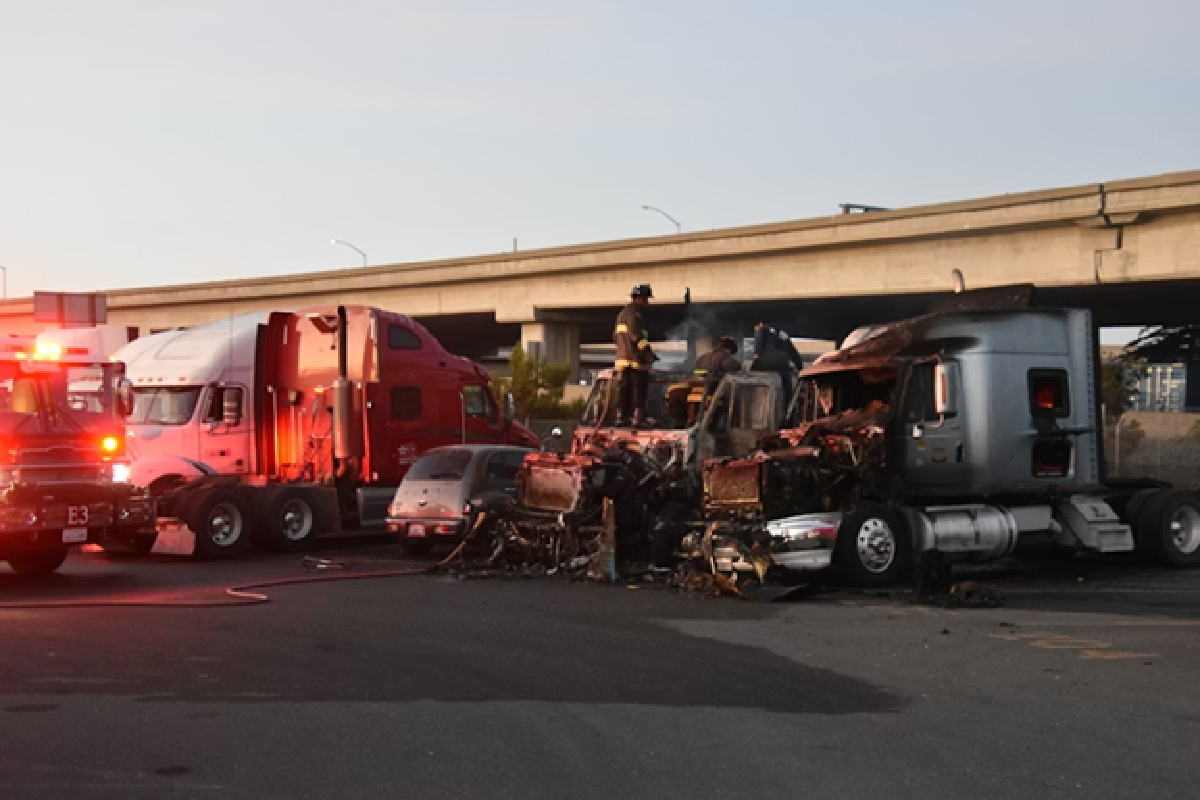Contents of this Post
ToggleTruck accidents bring heavy tolls that come at the expense of not only those involved but also entire families and communities. In Long Island, New York, the region’s extensive highway network, including the Long Island Expressway (I-495), Northern State Parkway, and Southern State Parkway, sees substantial commercial truck traffic daily. According to the New York State Department of Motor Vehicles, Nassau and Suffolk Counties combined report over a thousand large truck crashes annually, with many resulting in injuries. The New York State Court system data shows that truck accident cases in Long Island courts typically take 18 to 36 months to resolve, significantly longer than standard car accident cases, due to the complex liability issues and multiple parties often involved in commercial vehicle collisions.
Cases believed to be more complex may take longer to resolve than others, and understanding why may offer some clarity. If you’ve been involved in a collision with a commercial vehicle, working with a truck accident lawyer in Long Island can help you negotiate the confusing legal process and ensure your rights are protected throughout the lengthy resolution process. This post will discuss what makes these truck accident cases take longer than expected.
Complexity of Liability
Identifying who is liable in a truck accident is often not very cut and dry. If you are involved in a commercial truck accident, there may be multiple parties responsible, such as the truck driver, the trucking company, and possibly even the manufacturers of truck parts. Liability may be difficult to put on one party or the other; both may share some blame. This maze of responsibility is what demands investigation, usually by legal teams and technical subject matter experts. Collecting evidence and testimonies can take time, which also delays the resolution.
Extensive Investigation
An extensive investigation is normally needed for truck accidents. Your local police may investigate the accident, your insurance adjuster may investigate your claim, and an attorney may investigate your case. It starts with the examination of an accident scene, damage to a vehicle involved in a crash, and the surrounding street conditions. According to the Federal Motor Carrier Safety Administration, investigating commercial vehicle accidents requires examining driver logs, maintenance records, and compliance with federal safety regulations. That means checking these records thoroughly. While this thorough analysis ensures the inclusion of all relevant information, it also increases the duration required to reach a verdict.
Severity of Damages
Truck accidents can cause considerable damage. Serious injuries can occur, necessitating extensive rehabilitation and treatment. Sometimes, the cases involve death, which complicates the situation further. Full damages take into account medical expenses, lost wages, and future earning loss. This extensive assessment is essential for adequate compensation but can also extend the timeline.
Insurance Company Involvement
Truck accident claims often involve major insurance companies. They will frequently investigate incidents themselves and dispute claims to limit payouts. These companies make it hard to come to a compromise—negotiations take time and perseverance. This may require much back and forth between legal representatives, which will elongate the case resolution process.
Regulatory Compliance
There are many federal and state regulations that trucking companies must adhere to. Finding out whether or not these rules are being enforced is just another layer of complexity. For example, hours-of-service regulations exist to help manage and minimize the effects of driver fatigue. Such regulations can have implications for liability and compensation in cases of violations. Ensuring precise adherence to all regulations adds to the delays.
Legal Procedures
Truck accident claims are sometimes not as straightforward as they would be for standard accidents. It will take time to file lawsuits, secure evidence, and set court dates. And if it is litigated, a verdict may not arrive for months or years. Where settlements are sought, negotiation can take time, as both sides seek to settle on just compensation. While this long process is sometimes a requirement to do justice, it can be very frustrating for the claimants who just want to have due process completed.
Need for Expert Testimonies
In these cases, expert witnesses are often a key factor. Accident reconstruction experts, healthcare providers, and industry specialists may be asked to testify and assist with the claims. However, coordinating with these experts and scheduling their testimonies can be challenging, causing the case to take longer.
Emotional and Psychological Factors
The emotional burden that participants bear can also impact the timeline. It may take time for victims and their families to recover and find closure from what they went through before they choose to pursue legal actions. Although this pause may slow the process, it is needed to restore their emotional well-being.
Conclusion
Truck accident cases are inherently complex, and numerous factors can prolong the resolution process. Each of these steps—from establishing liability to the subsequent legal processes with all necessary care—takes time. Although that may take a while, the extended timeline guarantees that everyone involved in a case receives due process. Awareness of these elements can help set expectations and explain why these cases are so often lengthy in resolution.

